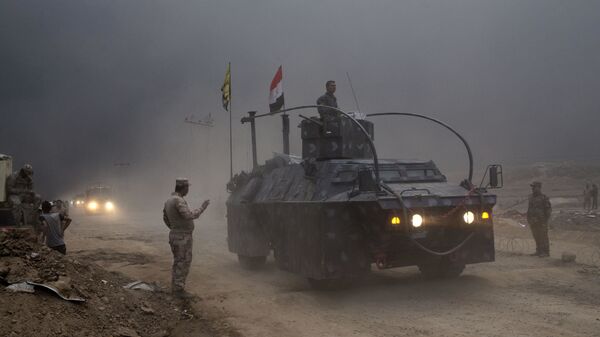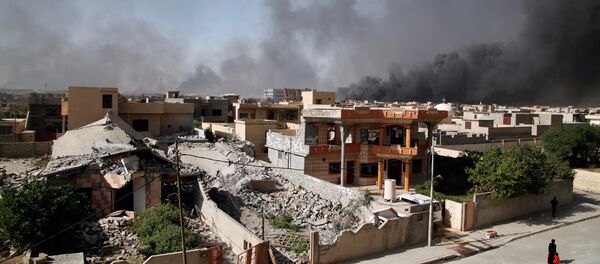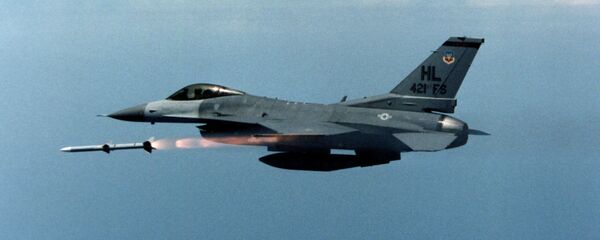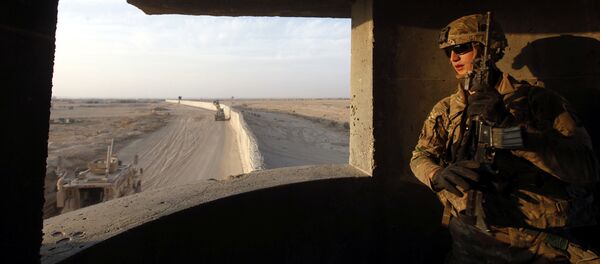According to the UN Office for the Coordination of Humanitarian Affairs' (OCHA) estimates, about one million people may flee Mosul due to the US-led coalition's operation, of which about 200,000 may be displaced during the first weeks of the offensive.
The situation is described as having the potential to be "one of the worst-case scenarios," the UN News Center website signaled last week.
On Wednesday, the UN High Commissioner for Refugees' (UNHCR) Representative in Iraq, Bruno Geddo revealed that the agency had registered some 10,550 displaced persons since the beginning of the coalition's advance.
"We are building camps and finalizing preparations at a frantic pace, but the current capacity is still limited to around 60,000 people. So if people are displaced from the city in waves, it will be easier to manage. If 150,000 to 200,000 people are displaced at once […] it will become a humanitarian disaster," he said as quoted by the website.
"Instead, they will be directed to 'emergency sites' that provide only the most basic services," she stressed, citing the International Organization for Migration (IOM).
US-based Strategic Forecasting, Inc. (Stratfor) intelligence firm echoed Brandt's concerns in its recent analytical report.
"The greater problem is that almost everywhere in Iraq, camps and sanctuaries are full. Many people leaving Mosul will have to crowd into existing camps and shelters, exacerbating the tenuous security and health conditions in these settlements," Stratfor's report stated, adding that Turkey and Jordan have recently tightened their borders with Iraq.
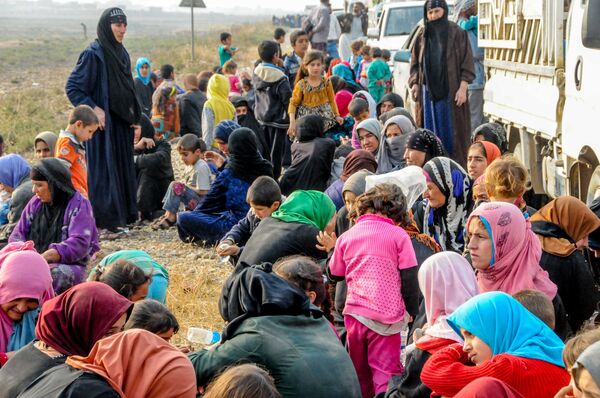
Meanwhile, according to Brandt, the number of Iraqis who need some form of humanitarian aid currently amounts to nearly one-third of the country's population.
"The number of people in Iraq who need some form of humanitarian assistance already exceeds ten million," she emphasized.
Citing UNHCR, the scholar pointed out that it will cost up to $196.2 million to handle the coming humanitarian crisis.
However, it's only the tip of the iceberg. The other problem, prompted by the US-led coalition's advance, is that humanitarian organizations need to establish "safe pathways out of the violence."
To make matters worse, the US' previous combat operations in the Middle East indicated that Washington pays a little if any attention to non-American civilian casualties, political analyst Oleg Glazunov of the Moscow-based Plekhanov Russian University of Economics told Radio Sputnik Thursday.
"Military aircraft usually do not take part in urban combat since it is hard to tell ally from an enemy. But Americans couldn't care less about these things…. For Washington, there are US citizens and all the rest who present no interest to the US," Glazunov said, highlighting that the Mosul operation consists mainly of urban combat.
On Tuesday, the Russian General Staff's chief Lt. Gen. Sergei Rudskoi told reporters that more than 60 civilians were killed and 200 injured because of the US-led coalition's airstrikes on residential areas in Mosul in the last three days.
"The key goal for Americans is to carry out a mission with minimal American losses. They don't care about the rest," Glazunov stressed commenting on the issue.
